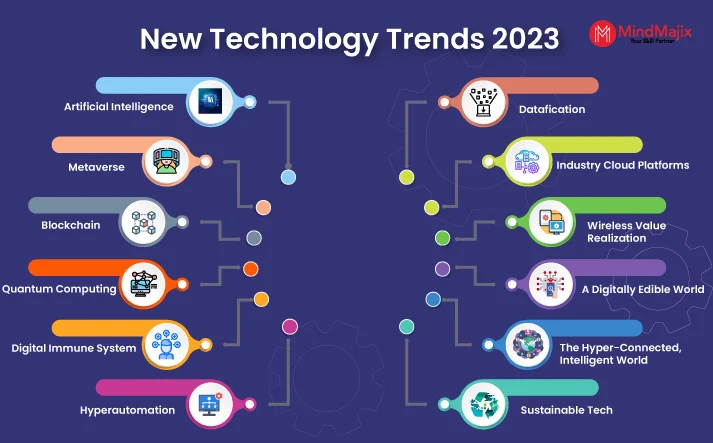As we step into 2024, the landscape of data security is undergoing a profound transformation, largely driven by the advancements in quantum computing. This cutting-edge technology promises to revolutionize the way we protect sensitive information, making traditional encryption methods obsolete. In this article, we will delve into the intricate relationship between quantum computing and data security, exploring how quantum algorithms and quantum key distribution are set to redefine the standards of cybersecurity.
Throughout this article, you will discover the fundamental principles of quantum computing and its unique capabilities that distinguish it from classical computing. We will examine the potential threats posed by quantum computers to current encryption techniques and discuss the innovative solutions being developed to counter these challenges. Additionally, we will highlight real-world applications and case studies that illustrate the impact of quantum technology on data security practices across various industries.
Join us as we navigate the complexities of quantum computing and its implications for data security in 2024. Whether you are a cybersecurity professional, a tech enthusiast, or simply curious about the future of technology, this article will provide you with valuable insights and a deeper understanding of how quantum computing is shaping the future of data protection. Read on to stay informed and prepared for the changes ahead!
As we move into 2024, quantum computing is poised to revolutionize data security. This technology, which leverages the principles of quantum mechanics, offers unprecedented capabilities that traditional computing cannot match. In this article, we will explore various aspects of how quantum computing is transforming data security.
The Basics of Quantum Computing
Quantum computing is fundamentally different from classical computing. While classical computers use bits as the smallest unit of data, quantum computers use qubits, which can exist in multiple states simultaneously. This property, known as superposition, allows quantum computers to process vast amounts of data at incredible speeds. Understanding these basics is crucial for grasping how quantum computing impacts data security.
Moreover, quantum entanglement, another key principle, enables qubits that are entangled to be correlated with each other, regardless of the distance separating them. This unique feature can be harnessed to create more secure communication channels, making it a game-changer for data security in 2024.
Quantum Key Distribution (QKD)
One of the most promising applications of quantum computing in data security is Quantum Key Distribution (QKD). QKD uses the principles of quantum mechanics to securely distribute encryption keys between parties. Unlike traditional methods, any attempt to intercept the key will disturb the quantum state, alerting the parties involved to the breach.
This level of security is particularly important in an era where cyber threats are becoming increasingly sophisticated. As organizations adopt QKD, they can ensure that their communications remain confidential and secure from eavesdropping, making it a vital component of data security strategies in 2024.
Post-Quantum Cryptography
As quantum computers become more powerful, they pose a significant threat to current cryptographic systems. Many encryption algorithms that are widely used today, such as RSA and ECC, could be easily broken by a sufficiently advanced quantum computer. This has led to the development of post-quantum cryptography, which aims to create encryption methods that are secure against quantum attacks.
In 2024, organizations must begin transitioning to these new cryptographic standards to protect sensitive data. The National Institute of Standards and Technology (NIST) is actively working on standardizing post-quantum algorithms, which will play a crucial role in securing data in the quantum era.
Enhancing Data Integrity with Quantum Computing
Data integrity is a critical aspect of data security, ensuring that information remains accurate and unaltered. Quantum computing can enhance data integrity through advanced verification methods. By utilizing quantum algorithms, organizations can create more robust systems for detecting unauthorized changes to data.
For instance, quantum hashing techniques can provide a higher level of security compared to classical hashing methods. This ensures that any tampering with data can be quickly identified, thereby maintaining the trustworthiness of information stored and transmitted across networks.
The Role of Quantum Computing in Secure Cloud Storage
As businesses increasingly rely on cloud storage solutions, the need for secure data management has never been more critical. Quantum computing can significantly enhance the security of cloud storage by implementing quantum encryption methods that protect data both at rest and in transit.
With quantum encryption, even if data is intercepted during transmission, it remains secure due to the principles of quantum mechanics. This makes quantum computing an essential tool for organizations looking to safeguard their sensitive information in the cloud in 2024.
Challenges and Limitations of Quantum Data Security
Despite its potential, quantum computing also presents challenges and limitations in the realm of data security. The technology is still in its infancy, and practical implementations of quantum security solutions are limited. Additionally, the cost of developing and maintaining quantum infrastructure can be prohibitive for many organizations.
Moreover, there is a learning curve associated with understanding and implementing quantum technologies. Organizations must invest in training and resources to effectively leverage quantum computing for data security, which can be a significant barrier to adoption.
Future Trends in Quantum Data Security
Looking ahead, several trends are likely to shape the future of quantum data security. As quantum technology matures, we can expect to see more widespread adoption of QKD and post-quantum cryptography. Additionally, advancements in quantum algorithms will lead to more efficient and secure data processing methods.
Furthermore
| Aspect | Description |
|---|---|
| Introduction to Quantum Computing | Quantum computing utilizes the principles of quantum mechanics to process information in fundamentally different ways than classical computers, enabling faster computations and solving complex problems. |
| Impact on Data Security | Quantum computers pose a significant threat to traditional encryption methods, as they can potentially break widely used algorithms like RSA and ECC, which rely on the difficulty of factoring large numbers and solving discrete logarithms. |
| Post-Quantum Cryptography | In response to the quantum threat, researchers are developing post-quantum cryptographic algorithms that are designed to be secure against quantum attacks, ensuring data protection in a quantum computing era. |
| Quantum Key Distribution (QKD) | QKD is a method of secure communication that uses quantum mechanics to distribute encryption keys. It ensures that any attempt to eavesdrop on the key exchange will be detectable, providing a higher level of security. |
| Regulatory Changes | As quantum computing advances, regulatory bodies are beginning to establish guidelines and standards for data security, pushing organizations to adopt quantum-resistant technologies to safeguard sensitive information. |
| Future Outlook | By 2024, the integration of quantum computing into data security frameworks is expected to be more prevalent, with organizations prioritizing the transition to quantum-safe solutions to protect against emerging threats. |




